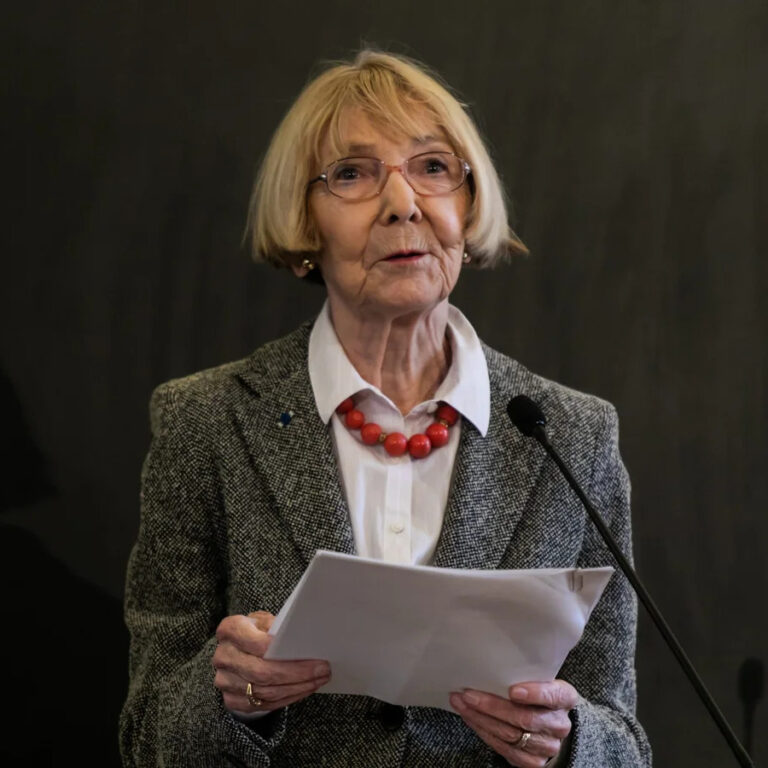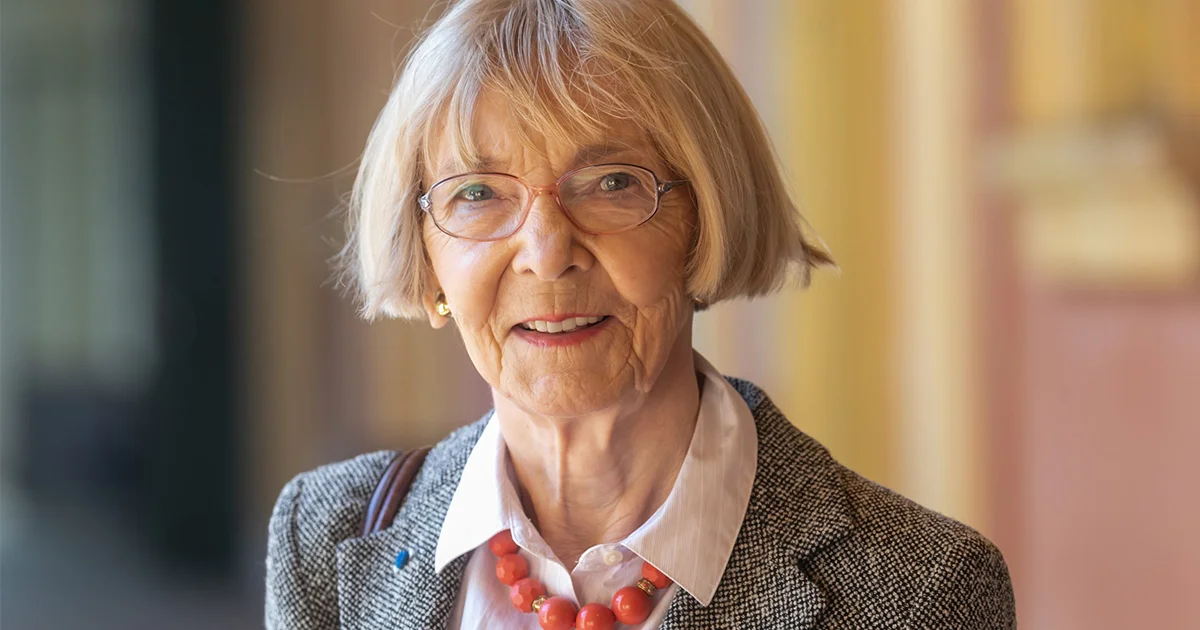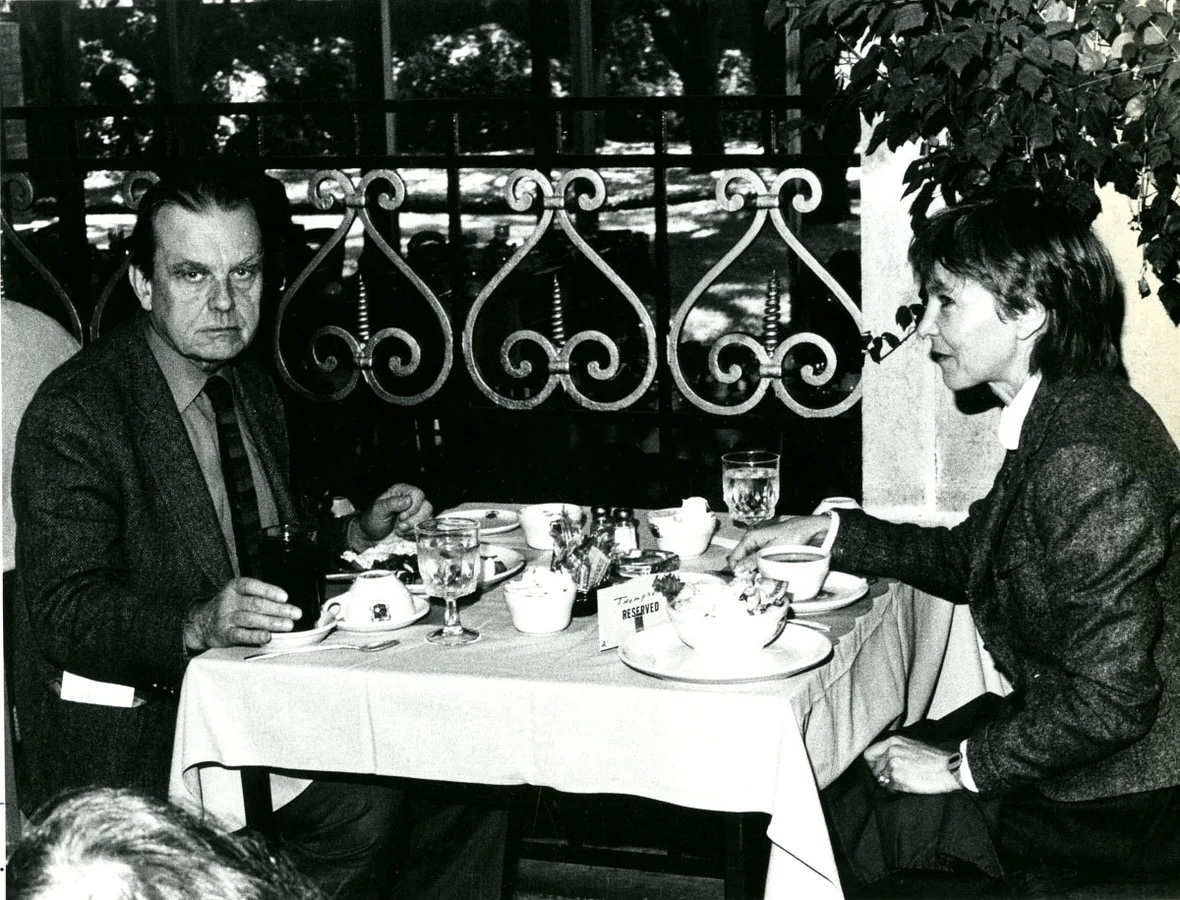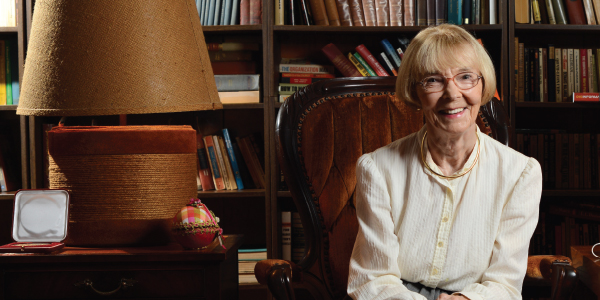
Ewa Thompson is a Polish-American literary scholar and a research professor of Slavic studies at Rice University in Houston. She was editor-in-chief of The Sarmatian Review magazine, published from 1981 to 2017. She has written several books on Russian literature, including “Imperial Knowledge: Russian Literature and Colonialism”. In this book, the author reveals how Russian writers helped conquer other nations and create an empire by legitimizing it through their works. For centuries, they praised the imperial army in every way possible, never writing a word about its evil deeds.
Ewa Thompson addresses the issues of whether art can be to blame for something, whether the perception of Russian culture has changed over the past 22 years, and whether “cancelling” it is justified. Our conversation starts with the concept of the “little man” that permeates Russian literature.
“Russian society does not produce freedom-loving people”
— These days, there are numerous discussions about reconsidering Russian culture and its responsibility in the war. Can culture be to blame for something? Does it only reflect reality?
— Of course, culture both reflects society and shapes it. This influence is mutual. If we talk about guilt, the evildoer is not the culture but the person who creates something.
However, on another, essential level, culture can be seen as the evildoer by creating a false image of a particular society. Russian culture, both in Russia and abroad — I would even say primarily abroad — has established an image that justifies the aggressive actions that the Russian Empire has been taking for centuries.
Many works of famous Russian literature have a “little man” as their protagonist. This figure is completely helpless and incapable of anything. However, if you look at the histories of different countries, you can see that liberty and freedom have only been achieved through the sacrifices of average people who, instead of sitting and weeping, went to fight for freedom.
Russian literature is completely unaware that freedom doesn’t come for free. It’s as if it’s simply blind to the fact that freedom must be fought for. Instead, a lot of Russian literature presents a “little man” who is weak-willed and miserable. But this isn’t how things work. People are able to mobilise themselves to destroy tyranny. Still, Russian literature doesn’t offer any such solutions. In this sense, it’s guilty of falsifying the image of a human being.

For example, in Pushkin’s “The Stationmaster”, a man lives in a small house and unjustly loses his daughter. Note that this “little man” has never experienced an invasion by another army; he is actually safe. And don’t mention the Polish invasion or Hitler. These were once-in-a-century occurrences. This (being the victim of a military attack — Ed.) is a rare thing for Russians. In contrast, the countries around Russia were constantly invaded by the Russian Army, which did terrible things there. And there is not a word about this in Russian literature.
Somehow, subconsciously, Russians started believing that they are miserable, helpless, oppressed, and absolutely not responsible for what the government in Moscow does. But the government would have been overthrown and transitioned if people in Russia had united and made sacrifices, just like people do in other countries, where dozens and hundreds of people have died for freedom. Nevertheless, in Russia, people don’t want to do this. There is a handful of dissidents there. Many have left for the West to speak out against the government from abroad. Everyone can see how great these people are. Yes, they’re great indeed — but there aren’t enough of them. These people can’t make any progress; Russian society doesn’t produce enough people ready to fight for freedom.
“Defensive nationalism is nothing but patriotism”
— In your book, you write about different types of nationalism: defensive (or protective) and expansive (or aggressive). Current events show that it is crucial to understand the difference between these two types of nationalism. In your opinion, in the 22 years since you wrote “Imperial Knowledge”, has the understanding of these two different types changed in the world?
— It’s worth remembering that we’ve been under the influence of Marxism for decades. For Marxists, liberals, and leftist movements, “nationalism” is a filthy word. And it doesn’t matter which kind of nationalism it is, because they don’t distinguish between them. We won’t talk about Marx himself here, because he sympathised with Polish nationalism and didn’t like Russian nationalism, while modern Marxism doesn’t accept nationalism at all. Today’s Marxists want to see humanity without any identity, whether sexual, national, religious, or otherwise.
For contemporary Marxists, nationalism is wrong because it divides people. And it would be good, according to them, to not pay attention to gender, nationality, or religion. Of course, officially, we don’t have to take these things into account, but purely personally, we do. It’s impossible to not consider these features. Humanity is naturally divided into national groups. Still, for Marxists, even the concept of “patriotism” is about nationalism.
In American universities, as in European ones, there is a lot of public discourse around this. If someone calls you a nationalist, it’s obvious that to them, you are a fascist. And we have to fight to make people aware of the difference between defensive and aggressive nationalism. In my academic activities, I constantly try to do this. I try to spread the understanding that defensive nationalism is nothing but patriotism. And patriotism has always been a good word, ever since the days of Ancient Greece when they defended Sparta.
The word “patriotism” has somehow disappeared from our dictionary. You will very rarely come across this term being used by academics or writers. Of course, countries should support defensive nationalism because this is how we protect our society and culture. However, there is still a long way to go before this difference is realised and accepted.
— You wrote that the Western world does not distinguish between other nations within Russia or in the countries that used to be under its rule. For foreigners, they’re all Russians. You give an example from a newspaper that said that Russians fought against and killed Russians, but in reality, it was about Chechens, Russians, and Armenians. Has anything changed over the years since the book came out?
— When I taught a Slavic studies course at university, it was always challenging for me to convince my students that Ukrainians are not Russians. They told me, “They speak the same language and look like Russians — they’re essentially Russians.” Students found particular writers and historians appealing. For example, the book “History of Russia” by Nicholas V. Riasanovsky (an American Slavic studies historian of Russian origin — Ed.) was published in one of the best publishing houses, has almost ten editions, and has been studied by tens of thousands of students. Riasanovsky outlined the history of Eastern Europe and non-Germanic Central Europe as if it were all Russia. My students would come and show me, “Look, this book says this.” And what could I do? It was written by a professor! Nonetheless, now they are beginning to understand that Russians and Ukrainians are distinct nations. These are some changes I see.
We’re still far from the general comprehension that even the Russian Federation does not consist of only Russians. This attitude is beginning to shift, but very slowly. I was struck by the fact that when Russia sends, for example, Buryats and Tajiks to fight in Ukraine, the Americans don’t pay any attention to this. They have never heard of these groups, so it doesn’t matter to them. But it’s actually very important.
“It hurts Russians to separate themselves from imperialism”
— You wrote that the Russian language is not capable of describing the concept of democracy. What does this mean? Do Russians have no verbal structures or words that reflect democratic values, or is it something else?
— Theoretically, it’s a beautiful language. It should be applicable to everything, be able to reflect everything. The problem is that there are no books in this language that would help Russians understand the colonial dimension of their country and culture. Russians are unaware that, for instance, in his novel “War and Peace”, Tolstoy left out all the nations between Germany and Russia. And millions of Western readers take it exactly as Tolstoy depicts it. This is what I mean when I say that the Russian language is not ready for this.

Eva Thompson has breakfast with Nobel laureate Czeslaw Milosz. Houston, 1982. Source: Local history
— But there are many Russian writers and scientists abroad who can write whatever they want.
— No, because it hurts a lot to separate yourself from all that imperialism cultivated in Russia for centuries. Sometimes it takes a lot of courage to write such books. It’s clear that foreigners should be the first to do this. It’s easier for them, and they will be able to convey these points to Russians.
I know some people in Russia who have read my book. There were Russian scientists who said: “This woman is insane. What is she writing about? This can’t be true! This is ridiculous.” When you start to separate all these non-Russian nations and territories from Russia, you find that there is a very limited space that is Russian. And it is extremely difficult for Russians to understand that one day this could all be reduced to a very limited space. The colonists of Western Europe at least had clear borders for their nationalities, whereas Russia did not have these clear borders. Therefore, it would be very painful for the Russians to let go of Siberia. So when Russian authors don’t want to bring this to light, it’s also about personal rejection.
I want my book about Russian literature and colonialism to be published in Russia. I imagine that if Russian nationalists were to read this book, they would first have a heart attack. But if they survived, this might be the first small crack in the shell of invincibility that covers their minds. Maybe, after that, they would read some works by Ukrainian, Lithuanian, Finnish, or other writers. Perhaps they would then understand that it was Russians who did that to Grozny.
Russians completely reject the reality of their colonialism. We must continue to work hard to prove this to the representatives of Russian opinion. However, the same must be demonstrated to the British mainstream, which was also largely colonial in the past. We have to show this to French society as well. You may know that Camus wrote an utterly colonial novel, The Stranger. This author had no idea that his society was colonial – just like Tolstoy, surprisingly!
The French need time to understand this. The Russians need a lot of time, more than a year, more than ten years. Still, I hope that Ukraine’s victory in this war will start a truly new era in Eastern and Central Europe and that it will help Russians understand that their history must be rewritten. The truth will set you free. The Western concept of freedom emerged from these words in the Bible.
“Things change pretty quickly if you work at it”
— You know that Ukrainians call on the world to boycott Russian culture. Do you think this is the right thing to do?
— Let’s consider Anna Netrebko, the singer who was a star at the Metropolitan Opera in New York. (In 2014, Netrebko publicly supported the extremist movements of the DPR and LPR — Ed.). It’s appropriate to tell her: “Thank you for your efforts, we will not work with you in the future.” As for those Russians who stand up against the empire, I would consider each case separately.
I actually don’t have an answer to this question because Russian literature is outstanding, especially Tolstoy and Dostoyevsky. But what’s terrible about these two is that they are completely unfair to other nations, ethnic groups, and the idea of freedom, excluding Tolstoy’s novella Hadji Murat. This is a very late work of his, where you can see a lot of anti-colonialism and notice other elements of Russian culture. Therefore, the conclusion is that you can be outstanding and be wrong at the same time.
I will also say this: the proposal to “cancel” culture is utopian as long as there are thousands of pro-Russian propaganda sources. I’m talking about Russian language and literature departments, particularly in America. They spread a false image of Russia that Moscow has defined for decades. In a certain sense, trying to present the subject you are teaching as positively as possible is normal… However, I’m one of those people who attempt to show the beauty of Russian literature, but at the same time, I want to tell students what I’m telling you now. And it’s complicated because it’s hard to separate beauty from falsehood. Sometimes I succeed, sometimes I don’t.

As long as we have all these Russian propaganda elements, I don’t think much can be done. There are thousands of students taking Russian courses at American universities and inevitably learning to sympathise with Russia and Putin as opposed to sympathising with Ukraine, Lithuania, Estonia, et cetera. You can ban Russians from performing in thousands of places like symphony halls and opera houses, but when it comes to changing the image of Russia, it remains just a dream as long as all these universities promote a false understanding of Russia, offering works by Karamzin and Dugin.
— What can Ukrainians do to convince the world that Russian nationalism is aggressive?
— You’re doing it so well that I envy you for it. Keep doing it. It’s not only about the army but also about public protests. And I don’t mean immediately changing Slavic studies, but at least establishing Ukrainian language and literature courses in American universities. This will then affect the Russian courses. It’s complex and requires a lot of funding, but it must be done gradually, from university to university, over the years and generations.
I believe Ukrainians will be able to accomplish this. I remember that in the 1980s, the Ukrainians I spoke with didn’t even dream of independence. They thought it was impossible. And look at what happened! Things change pretty quickly if you work at it.

